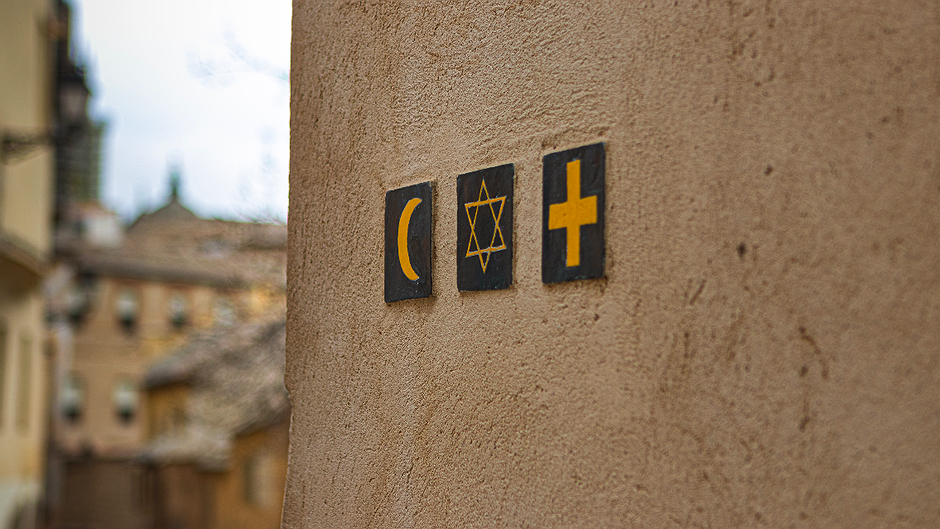
Protecting and promoting the right to FoRB and other intersecting rights
International human rights treaties and States have long acknowledged the importance of respecting, protecting, and fulfilling the right to freedom of religion or belief (FoRB). Guaranteed in Article 18 of the UN Universal Declaration of Human Rights (adopted in 1948) and Article 18 of the International Covenant on Civil and Political Rights (adopted in 1966) FoRB protects everyone, from every religious or belief identity. Moreover, reflecting State obligations in international human rights law, most constitutions written after World War II have also included FoRB.
By acknowledging that protecting and promoting universal human rights contribute to the well-being of individuals, communities, and States, we will examine the right to FoRB and how it intersects with other human rights. This is especially important given the tensions that can arise between harmful behaviour that is justified by reference to one’s religion or belief and standards of human rights protection. FoRB is a human right for people, rather than protecting religion or belief systems per se.
Freedom of Religion or Belief, Freedom of Expression, and Freedom of Assembly
According to UN Declaration of Human Rights in Article 18: “Everyone has the right to freedom of thought, conscience, and religion; this right includes freedom to change his religion or belief, either alone or in community with others and in public or private, to manifest his religion or belief, in worship, teaching practice and observance.”
This right has two dimensions: the forum internum (thoughts and beliefs held internally) and forum externum (external manifestations of one’s religion or belief such as prayer, and engaging in religious teachings). While States can never restrict enjoyment of the former, they can restrict the latter in very limited circumstances with a high threshold. One criterion is that the restriction must be necessary for the protection of public safety, public order, health or morals, or the rights of others. The latter includes the right of others not to be discriminated against, including on the protected grounds of race, ethnicity, disability, sexual orientation or gender identity.
The right to manifest one’s religion and to be free from religious discrimination can also come into conflict with the rights to freedom of expression and freedom of assembly, where one incites hatred, violence, and discrimination against. At the same time, these rights intersect in a complementary and mutually reinforcing way - for example, someone who manifests their religion or belief is typically protected both by FoRB and freedom of expression and freedom of assembly. One can exercise and enjoy their religion or belief by speaking, writing, and using other forms of communication individually or in community with others.
Freedom of expression is, like the freedom to manifest one’s religion or belief, not an absolute right. In respect of religion or belief, the right to freedom of expression is often engaged in two ways; when someone is expressing their religion or belief or when someone is expressing views about the religion or belief of others which could incite hatred, violence, and discrimination. States may restrict the freedoms of expression and associations in such circumstances, provided that it satisfies the same high threshold as detailed above for imposing restrictions on external manifestations of FoRB.
To learn more about the right to freedom of religion or belief, how international human rights standards relate and intersect with this right, and how to apply international law framework in human rights advocacy, take our latest courses by CUNY:
Human rights in practice: the right to Freedom of Religion or Belief>>
ENGLISH: https://advocacyassembly.org/en/courses/65/#/chapter/1/lesson/1
RUSSIAN: https://advocacyassembly.org/ru/courses/65/#/chapter/1/lesson/1
UZBEK: https://advocacyassembly.org/uz/courses/65/#/chapter/1/lesson/1
Human rights monitoring, reporting and advocacy>>
ENGLISH: https://advocacyassembly.org/en/courses/66/#/chapter/1/lesson/1
RUSSIAN: https://advocacyassembly.org/ru/courses/66/#/chapter/1/lesson/1
UZBEK: https://advocacyassembly.org/uz/courses/66/#/chapter/1/lesson/1
Related courses

90 mins
 School of Data
School of Data
90 mins
 School of Data
School of Data Rory Peck Trust
Rory Peck Trust
50 mins
 Rory Peck Trust
Rory Peck Trust
Blogs

6 useful resources for journalists covering Covid-19
With a global pandemic spreading throughout the world, journalists are under increasing pressure to report accurate and relevant news for the masses. Often when covering a crisis, those on the reporting frontlines compromise their physical safety and mental health. To show some solidarity, the Advocacy Assembly team curated a list of useful resources from other organisations leading the way on this.

5 ways to find data for your next story
Data journalism is fast becoming a big trend in newsrooms across the globe. However, data isn’t always so easy to find. Here are five ways to get data for your next article.



